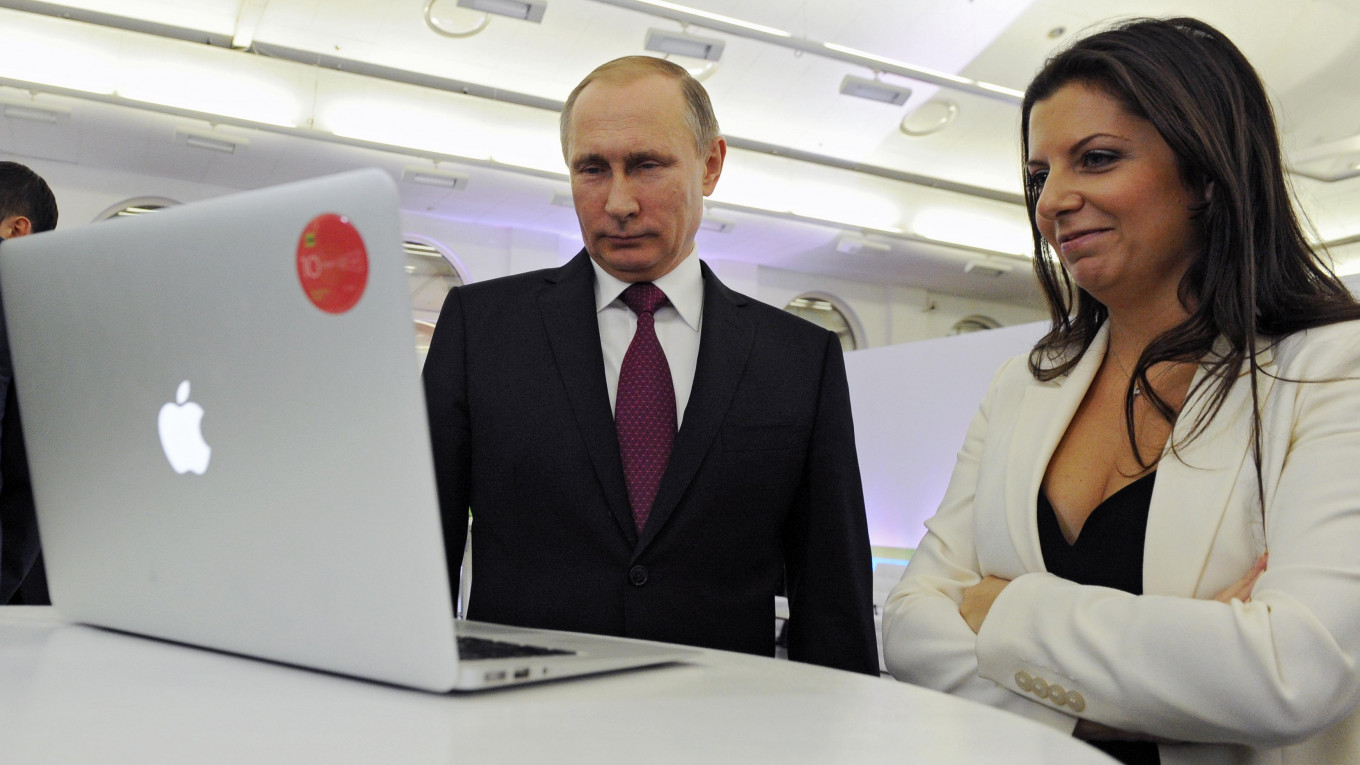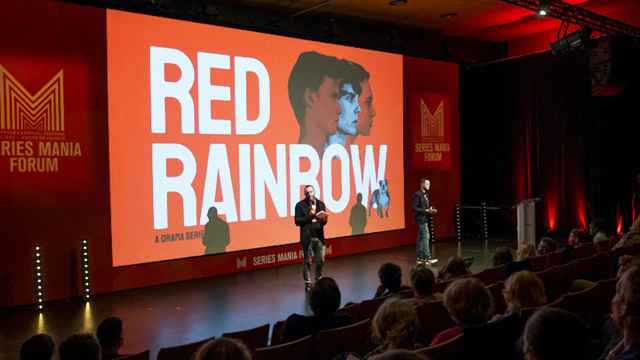Since 2005, when the Kremlin launched “Russia Today” to promote Moscow’s perspective on world news, foreign media regulators have been slapping the TV network with violations of rules on impartial reporting, and criticizing it for acting as the Russian government’s mouthpiece.
RT's mission to regurgitate Moscow's line has been most palpable in its coverage of the conflicts in Ukraine and Syria, where Russian troops have intervened directly.
Ukrainians are stringing up Russian children in the war-torn east and crucifying them, RT told its viewers. In Syria, the West armed ISIS, while Russia shed blood and treasure to liberate Aleppo from Islamist terrorists, RT’s audience also learned.
Neither of these stories are true. In fact, they were so fabricated that British regulator Ofcom formally investigated RT and ruled that the network had breached the country’s media codes.
An unlikely crusade
Given RT’s reputation for reporting bogus news, you might think it lacks the credentials to start debunking “fake news,” but that’s precisely what the folks at the network’s Moscow headquarters have decided to do.
On Wednesday, RT launched FakeCheck, a website it says is dedicated to helping readers “separate fact from fake.”
“Misinformation can spread like wildfire,” said RT head of news Andrey Kiyashko, a man who would know.
So far, RT has only “fake-checked” six stories, three of which are related to Syria, reflecting the Kremlin’s outrage at international accusations that Russia committed and facilitated war crimes during the siege of Aleppo last year.
For instance, FakeCheck says the “avalanche of heart-wrenching ‘goodbye’ messages” from civilians in eastern Aleppo were, in fact, “fake,” because the messages were actually from “activists” — some with “dubious reputations” — “engaged in an information war.”
What constitutes a “dubious reputation” for RT? Ismail al-Abdullah’s membership in the White Helmets qualifies, FakeCheck argues, pointing out that the group “was founded by a former British military officer and is funded by the U.S. and the UK.”
“It almost looked like a coordinated PR campaign aimed at delivering just one message: that the Assad regime was brutally slaughtering its own people,” the website says.
Moscow loses its patience
Describing FakeCheck, RT chief editor Margarita Simonyan said, without any irony, that her network has resolved to “take action” against the spread of fake news: “Someone (from the Washington Post, for example) will write complete nonsense and then the world reprints it!”
Asked if FakeCheck will also debunk stories in the Russian media, RT's press officer Anna Belkina told The Moscow Times, “FakeCheck can address any news media story with glaring factual issues, which is running rampant.”
FakeCheck joins another “debunking” effort recently launched by Russia’s Foreign Ministry. While RT quizzes readers, challenging them to guess how a story is fake, the Foreign Ministry is a bit heavier-handed, branding screenshots of questionable articles with a gigantic official-looking stamp.
A Message from The Moscow Times:
Dear readers,
We are facing unprecedented challenges. Russia's Prosecutor General's Office has designated The Moscow Times as an "undesirable" organization, criminalizing our work and putting our staff at risk of prosecution. This follows our earlier unjust labeling as a "foreign agent."
These actions are direct attempts to silence independent journalism in Russia. The authorities claim our work "discredits the decisions of the Russian leadership." We see things differently: we strive to provide accurate, unbiased reporting on Russia.
We, the journalists of The Moscow Times, refuse to be silenced. But to continue our work, we need your help.
Your support, no matter how small, makes a world of difference. If you can, please support us monthly starting from just $2. It's quick to set up, and every contribution makes a significant impact.
By supporting The Moscow Times, you're defending open, independent journalism in the face of repression. Thank you for standing with us.
Remind me later.






